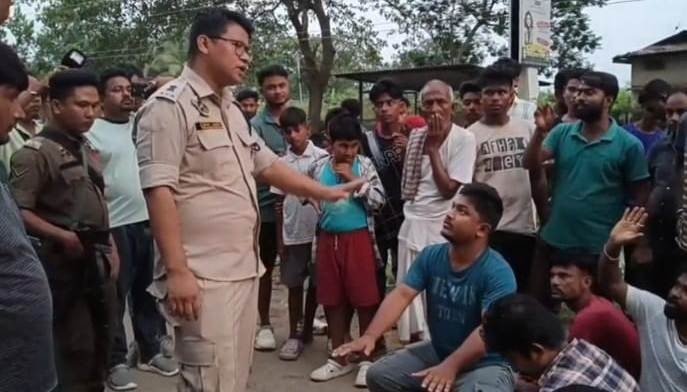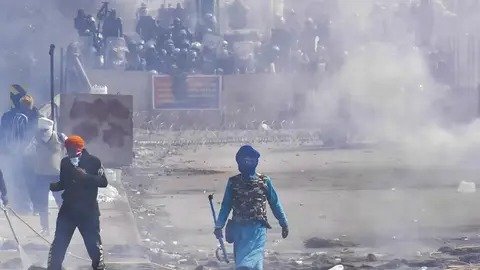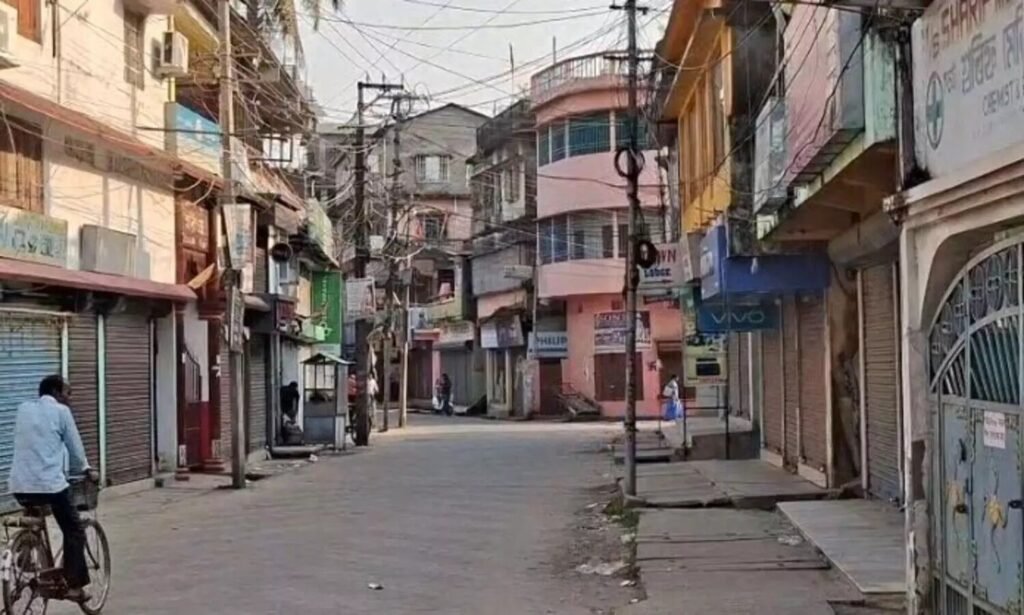Dhubri, Assam, is currently under prohibitory orders following the alleged recovery of cow meat at multiple locations within the town. The District Commissioner issued the orders under Section 163(1) of the Bharatiya Nagarik Suraksha Sanhita, 2023, a measure designed to prevent potential breaches of peace and maintain public tranquility in the face of escalating tensions. The immediate effect of the order has been the closure of all shops and commercial establishments within Dhubri town limits, bringing daily life to a standstill. Furthermore, the assembly of five or more persons in public places is strictly prohibited, effectively curtailing any potential for public gatherings or protests.

The situation unfolded after reports surfaced of cow meat being discovered in various locations throughout Dhubri. Cow slaughter is a highly sensitive issue in many parts of India, particularly in Assam, where the cow is considered sacred by a significant portion of the population. The alleged discovery of cow meat has ignited strong emotions and raised concerns about potential communal unrest.
In response to the volatile situation, law enforcement agencies, including the Central Reserve Police Force (CRPF) and paramilitary forces, have been deployed across the town. Their presence aims to maintain order, prevent any escalation of violence, and reassure the public. The authorities are taking the situation extremely seriously, recognizing the potential for the issue to be exploited by vested interests seeking to disrupt communal harmony.
So far, one individual, identified as Ramjan Ali, has been arrested in connection with the incident. The arrest took place near the Hanuman Mandir, a Hindu temple, further highlighting the sensitivity of the situation and the potential for inter-community tensions to flare up. The police are currently investigating Ali’s alleged involvement and are working to determine the source of the recovered meat and the motives behind its presence in the town.
The imposition of prohibitory orders is a significant step, indicating the gravity of the situation as perceived by the local administration. Such measures are typically implemented when there is a clear and present danger to public order and safety. The orders grant the authorities broad powers to restrict movement, assembly, and other activities that could potentially exacerbate tensions.

The impact of the prohibitory orders is being felt acutely by the residents of Dhubri. The closure of shops and commercial establishments has disrupted daily routines and livelihoods, particularly for small business owners and daily wage earners. The restrictions on movement and assembly have also curtailed social interactions and community activities. While the measures are intended to ensure safety and prevent unrest, they also impose significant constraints on the lives of ordinary citizens.
The coming days will be crucial in determining the long-term impact of this incident on the social fabric of Dhubri. The authorities face the challenge of not only maintaining law and order but also addressing the underlying issues that have contributed to the current tensions. This will require a multi-pronged approach that includes thorough investigation, transparent communication with the public, and efforts to promote dialogue and understanding between different communities.
The incident in Dhubri serves as a reminder of the fragility of communal harmony and the importance of proactive measures to prevent and manage potential conflicts. It also underscores the need for responsible reporting and the avoidance of inflammatory rhetoric that could further inflame tensions. As the investigation unfolds and the situation evolves, all eyes will be on Dhubri to see how the community and the authorities navigate this challenging period. The hope is that through careful management and a commitment to peace, Dhubri can emerge from this crisis stronger and more united.
Tensions Rise in Dhubri as Prohibitory Orders Clamp Down Following Alleged Cow Meat Recovery
Dhubri, Assam, is currently under prohibitory orders following the alleged recovery of cow meat at multiple locations within the town. The District Commissioner issued the orders under Section 163(1) of the Bharatiya Nagarik Suraksha Sanhita, 2023, a measure designed to prevent potential breaches of peace and maintain public tranquility in the face of escalating tensions. The immediate effect of the order has been the closure of all shops and commercial establishments within Dhubri town limits, bringing daily life to a standstill. Furthermore, the assembly of five or more persons in public places is strictly prohibited, effectively curtailing any potential for public gatherings or protests.
The situation unfolded after reports surfaced of cow meat being discovered in various locations throughout Dhubri. Cow slaughter is a highly sensitive issue in many parts of India, particularly in Assam, where the cow is considered sacred by a significant portion of the population. The alleged discovery of cow meat has ignited strong emotions and raised concerns about potential communal unrest.
In response to the volatile situation, law enforcement agencies, including the Central Reserve Police Force (CRPF) and paramilitary forces, have been deployed across the town. Their presence aims to maintain order, prevent any escalation of violence, and reassure the public. The authorities are taking the situation extremely seriously, recognizing the potential for the issue to be exploited by vested interests seeking to disrupt communal harmony.
So far, one individual, identified as Ramjan Ali, has been arrested in connection with the incident. The arrest took place near the Hanuman Mandir, a Hindu temple, further highlighting the sensitivity of the situation and the potential for inter-community tensions to flare up. The police are currently investigating Ali’s alleged involvement and are working to determine the source of the recovered meat and the motives behind its presence in the town.
The imposition of prohibitory orders is a significant step, indicating the gravity of the situation as perceived by the local administration. Such measures are typically implemented when there is a clear and present danger to public order and safety. The orders grant the authorities broad powers to restrict movement, assembly, and other activities that could potentially exacerbate tensions.
The impact of the prohibitory orders is being felt acutely by the residents of Dhubri. The closure of shops and commercial establishments has disrupted daily routines and livelihoods, particularly for small business owners and daily wage earners. The restrictions on movement and assembly have also curtailed social interactions and community activities. While the measures are intended to ensure safety and prevent unrest, they also impose significant constraints on the lives of ordinary citizens.

The coming days will be crucial in determining the long-term impact of this incident on the social fabric of Dhubri. The authorities face the challenge of not only maintaining law and order but also addressing the underlying issues that have contributed to the current tensions. This will require a multi-pronged approach that includes thorough investigation, transparent communication with the public, and efforts to promote dialogue and understanding between different communities.
The incident in Dhubri serves as a reminder of the fragility of communal harmony and the importance of proactive measures to prevent and manage potential conflicts. It also underscores the need for responsible reporting and the avoidance of inflammatory rhetoric that could further inflame tensions. As the investigation unfolds and the situation evolves, all eyes will be on Dhubri to see how the community and the authorities navigate this challenging period. The hope is that through careful management and a commitment to peace, Dhubri can emerge from this crisis stronger and more united.

